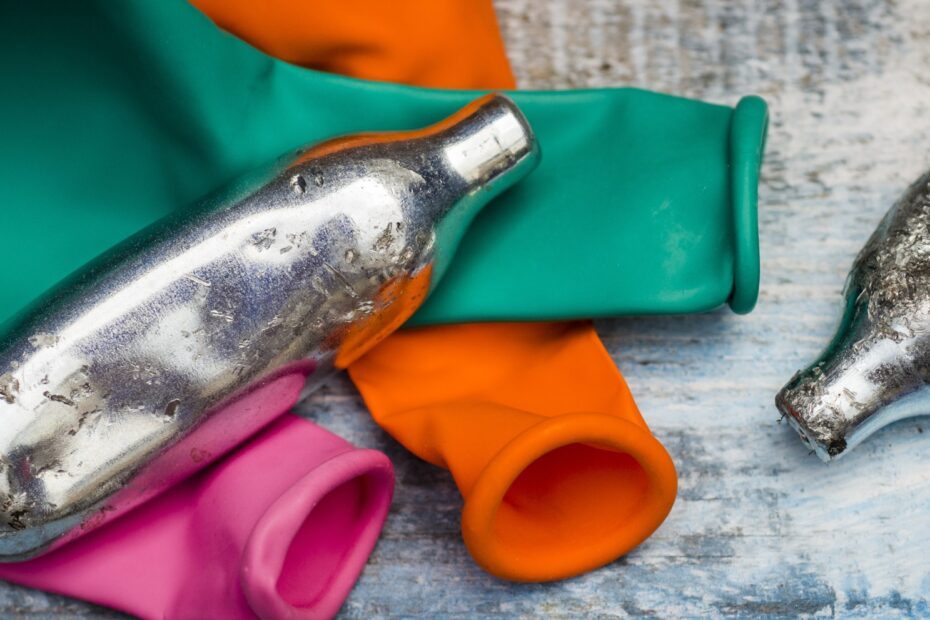People since the dawn of time have found ways to achieve altered states of mind through using (and abusing) substances. Addiction is so rooted in our nature that there will always be people seeking to escape their current woes by using substances to distract themselves. This can be through alcohol, painkillers, prescription drugs, marijuana, or psychedelics. While there has been no shortage of coverage on the ways in which people fuel their addictions, there is one worth remembering that certainly still poses a problem—nitrous oxide addiction.
Huffing—or Nitrous Oxide Addiction
Addiction to alcohol, drugs, and opioids/opiates has taken stage front and center over the past decade. However, let’s not forget that the ways in which people develop substance use disorders are not limited to those things alone.
Abusing nitrous oxide—what’s commonly referred to as laughing gas, is no laughing matter. Doing so was known colloquially as “huffing” (which denotes a common method of using the gas) and was a prominent part of drug awareness in the 90s and early 2000s. Nitrous oxide has been used as a party drug for well beyond that time period and has since had enduring use to this day. It is a well-known fact that many people have considered one of the few positive aspects of outpatient surgery or dental work is the potential administration of laughing gas to sedate you as a patient.
It is perhaps for this reason primarily that the severity with which people view laughing gas—nitrous oxide, as being somewhat harmless. This is far from the truth; if access to nitrous oxide was limited to patient visits at the doctor’s office, then perhaps the potential for abuse would be minimal. After all, it’s not that easy to keep cannisters of gas lying around the home, much less hide an addiction to inhaling them.
Or is it?
The potential for abuse for nitrous oxide is much higher due to the second-hand availability of the drug through innocuous household or kitchen items such as whipped cream and whipped cream chargers. As we discussed in our article about DXM abuse while in recovery, having common items around the home can be potential sources of relapse and that is a difficult situation to navigate. It is often better to simply not keep them around.
These cans such as whipped cream cans often use nitrous oxide to expel the contents of the can.
Nitrous oxide addiction introduces these effects to the consumer:
- Feelings of euphoria and calm
- Laughter (as evidenced by the name laughing gas)
- Audio and visual hallucinations
- A general slowing down of motor control and nervous system activities
Conversely, these effects also cause:
- Severe headaches
- Dizziness and slurring
- Confusion
- Intense bouts of paranoia for short periods of time
Overall, the drug is highly abusable due to its availability, ease of administration, and relatively short window of effect (about 5 minutes). These factors may cause individuals to quickly acclimate to and administer doses over, and over, and over again.
Symptoms of Nitrous Oxide Overdose
Symptoms of nitrous oxide overdose are as follows:
- Bad coughing, wheezing, and tightness of the chest
- Seizures and respiratory depression
- Headaches, dizziness, and sluggishness
- Rapid heartrate, blood pressure changes, and cardiovascular events such as heart attack
- Psychosis as a result of hallucinations
- Blue tint to fingers, lips, and toes
One of the chief concerns with nitrous oxide is that due to the method of administration being inhalation of a gas, people abusing nitrous oxide over a long period are simply not receiving enough oxygen which can have damaging and deadly effects on the brain and other organs as a result of hypoxia.
Nitrous Oxide Addiction: General Outpatient Program DC
Encore Outpatient Services provides addiction treatment through our PHP, IOP, and general outpatient programs in DC. If you or friend or family member has a nitrous oxide addiction, it is imperative that treatment is started right away.
Encore Outpatient Services has several programs that can accommodate people’s differing time needs and commitment level. Our general outpatient program in DC is one such program. Contact Encore Outpatient Services today for more information.
